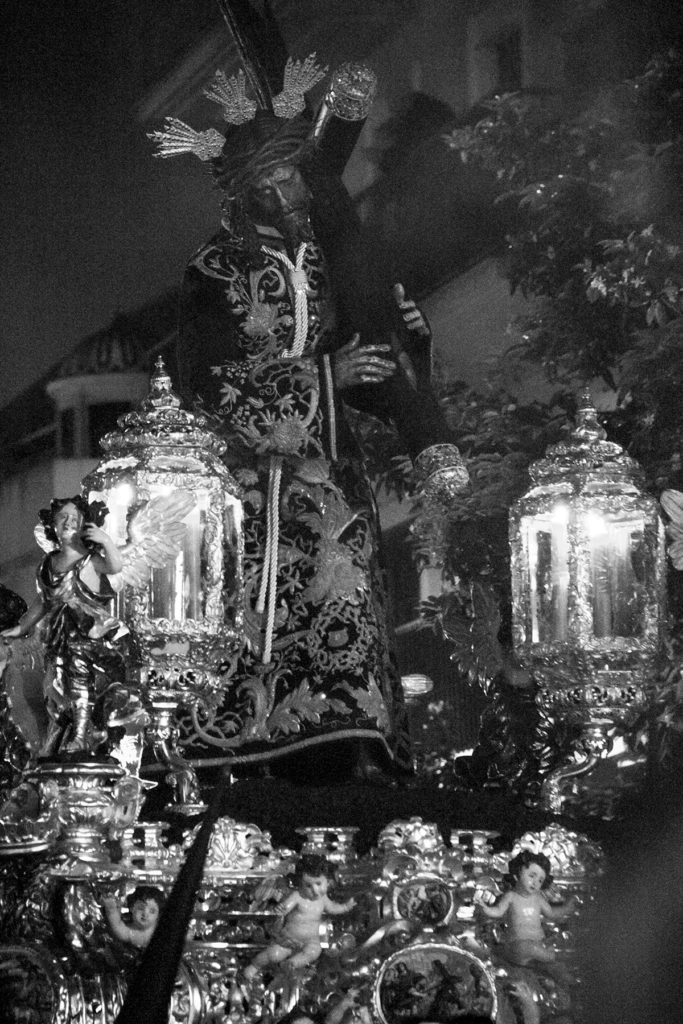The media comment that the health parameters almost allow us to speak of a return to normality; but this normality is not measured only in external indicators, everyone has their own references: hugging the grandchildren, recovering social gatherings, family meals, going to the movies, and others like that. In short, to get back in tune with life and the environment. These little things are what bring us closer to normality.
Among the sentimental indicators of many people there is one that has already recovered: the processions return to the streets. Some have already gone out and, if all goes well, in a few days the Gran Poder will go through the streets of Seville to visit the poorest neighborhoods of the city and spend a few days there, with their children most in need of comfort and company.

To some this indicator may seem somewhat anachronistic, typical of an outdated sentimentalism, a manifestation of a popular religiosity that no longer has a place in today's Christianity, but it is something more profound: "One does not become a Christian because of an ethical decision or a great idea, but because of an encounter with an event, with a Person, which gives a new horizon to one's life and, with it, a decisive orientation." (Benedict XVI, Deus Caritas est)
That is the meaning of these popular manifestations of faith that are the processions: the encounter with the Lord through the streets, walking his redemptive pain, going out to look for his children, like the father of the prodigal son who ran to meet him to embrace him, trying to be the one to meet with the most reluctant. The absence of his daughters and sons weighed on him, so long without seeing them, and he needed to go out into the street to meet them, knowing that he leaves no one indifferent. That is what it is all about: to see him and for him to see us, to recover hidden affections, sometimes forgotten. That is the essence of popular religiosity.
A French philosopher, G. Thibon, explained the difference between equilibrium and harmony. Equilibrium is the state in which an object, or a situation, is subjected to equivalent and opposite forces that cancel each other out. Harmony, on the other hand, is achieved when different forces complement each other to create a better situation. We speak of nuclear balance, not harmony, when nations equalize their atomic potential and fear each other. Harmony is the situation in a family where one brings his or her different capabilities to a common end.
The Christian life is not equilibrium, it is a harmonious combination of ethics and aesthetics, of formation and feelings. Understanding by ethics the way in which the person has to act to obtain his perfection as such and by aesthetics the recognition of beauty, of what is pleasing to the senses, what attracts, captivates and perfects the person in its contemplation. The processions are an appropriate channel for the brothers to develop ethics and cultivate aesthetics, in the proportion that has been defined over time, sometimes centuries.
It is time to recover that indicator of normality that is to meet the Lord walking through the city with his pain, a pain that does not suspend reason.
Ignacio Valduérteles
Both are necessary, both reinforce and complement each other. To place ethics exclusively as a reference would lead to a kind of stoic indifference, centered on the fulfillment of duty for duty's sake, without any affection contaminating it, occupied in the compulsive fulfillment of rules and regulations. On the contrary, letting oneself be carried away only by aesthetics leads to a pietistic sentimentalism, in which there would be the danger of sentiment becoming the criterion of truth, invading the areas of understanding and will. Objective truth could disappear by being reduced to sentiment.
Now it is time to recover that indicator of normality that is to meet the Lord walking his pain through the city, a pain that does not suspend reason. Stooped under the weight of the cross, but without losing dignity, elegance, or compass, that he carries in the blood that transfused the Mother in her womb. Feeling his pulses and his breathing. He goes out to the street to explain that pain must be carried and loved; that what frustrates a life is not pain but the lack of love; that sacrifice with Love is an immense joy and without it it is meaningless; that we must associate our pain to the Redemption to make it fruitful; that we must learn to carry the crosses of each day, if possible with the same elegance.
Love and feeling. The Lord is in the street. Now, yes, the city recovers its normality.
D. in Business Administration. Director of the Instituto de Investigación Aplicada a la Pyme. Eldest Brother (2017-2020) of the Brotherhood of the Soledad de San Lorenzo, in Seville. He has published several books, monographs and articles on brotherhoods.








